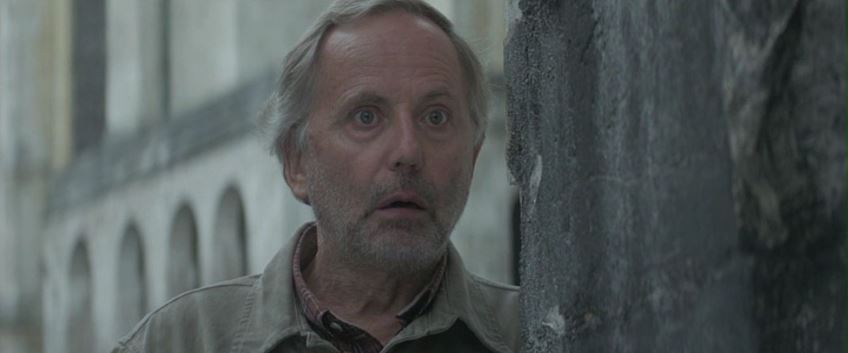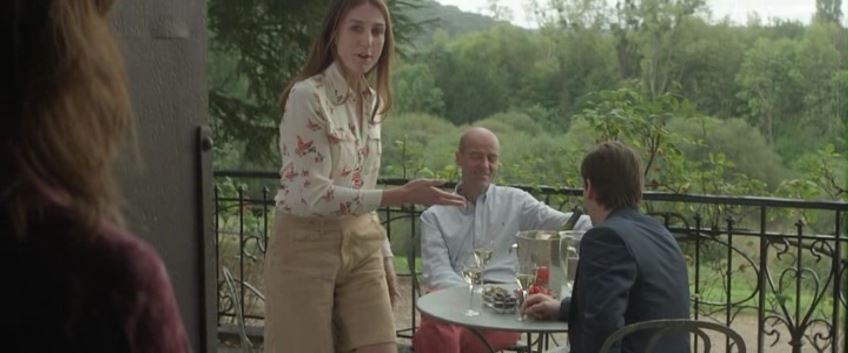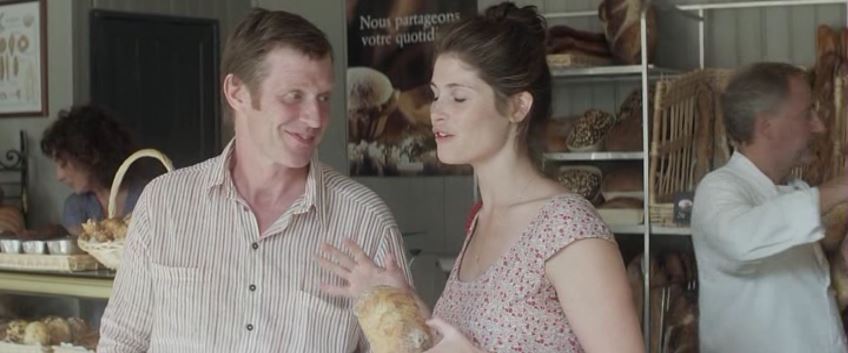No one can do a hangdog, would be dirty-old-man better than French actor Fabrice Luchini. He looks perpetually guilty, like a slightly overweight little boy caught with his hand in the cookie jar and begging you not to notice. Luchini was so good in François Ozon’s masterpiece, In the House that he deserved an Oscar nomination. In both In the House and in Director Anne Fontaine’s new film Gemma Bovery, Luchini plays a frustrated bookworm whose long-suffering wife gets put on the backburner when a young stranger arrives in town who sparks his literary imagination.

Martin (Luchini) and his wife do what many Parisian couples in their sixties do: they move to a quaint village in Normandy and run a small business. Martin is the village baker, but he seems to have moved to Normandy to be near Emma Bovary, the bored, middle-class protagonist of Gustave Flaubert’s 1856 novel.
One day Martin’s routine is disrupted when a British couple move into a cottage across the street. Right away their names – Gemma Bovery (Gemma Arterton) and Charlie Bovery (Jason Flemyng) remind Martin of Emma and her dull, doctor husband Charles Bovary. Names aside, Gemma even looks like Emma. She is soft-spoken, sweet, pale, disarmingly beautiful and sexy in that unself-conscious way that makes her all the more appealing.
When Gemma has an affair, Martin is transfixed as her life begins to resemble that famous fictional life that he knows so well. As the narrator, a character to whom Emma comes for advice, and a voyeur, he is helpless to act. If he warns her of the fate of a literary character in connection to her own life, he will appear certifiably insane.
Gemma Arterton, a striking woman, has never looked so good. She, and cinematographer Christophe Beaucame (Coco Before Chanel) manage to turn her every movement into a sexual come-on. The camera practically undresses Arterton as it closes in on her most mundane movements, turning them into an act of seduction. Whether this is the real Gemma or Martin’s wishful eye, is what the film explores.
Though the physical presentation is spot on, Arterton struggles to find any back story, depth of character, or even the right tone in the increasingly tiresome screenplay by Pascal Bonitzer with Fontaine.

The scenes between Martin and Gemma, set in the lovely countryside, have a delightful spark, but it is not strong enough to ignite the rest of the film. And it needs a mighty big spark because the promising premise is thrown away.
As the film rambles on, we become aware there are actually very few similarities between the lives and choices of the two women, one of the 19th and the other of the 21st century. The filmmakers do stage a couple of scenes showing the boring, superficial world of the petite bourgeoisie, but Gemma’s situation is far different. If the filmmakers are trying to make any social commentary, it is not clear what that is. Much more wit and insight is needed to make the film seem fresh, subversive or even relevant.
Another problem is that little is known of Martin although, as the narrator and village voyeur, he is the central character. It is hard to reconcile this village baker with a literary connoisseur and, other than reading in the garden, we are left to assume that he lives vicariously through his literary characters.
The film might have made more of an impact if Martin’s literary knowledge were restricted to Madame Bovary, which is set nearby in Upper Normandy, the area Martin chose to move to. But late in the film we discover that it is not just Madame Bovary, but other classics with a doomed heroine that obsess him. This gives a new perspective to Martin’s character and seems to be the premise of a different movie or a possible sequel!
The necessary irony is that when Martin introduces Gemma to Flaubert’s novel she looks as though she has never heard of it, let alone read it. Martin declares Flaubert’s novel to be a masterpiece, as though hoping that if Gemma reads it, she can avoid Emma’s fate.
Sadly, Gemma Bovery is no masterpiece. Little of Flaubert’s story telling skills, period details and characterisation come across in Fontaine’s film and nothing is at stake. Not even the charismatic Luchini and seductive Arterton can add substance to an aesthetically pleasing comedy with a wobbly premise and nothing much to say.




